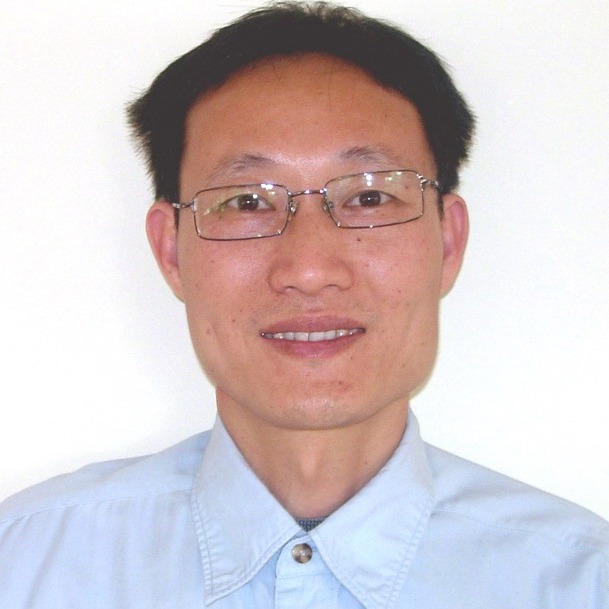Areas of Focus
- BRCA1 tumor suppressor network
- Mechanisms of breast cancer metastasis
- Tumor biomarker discovery and application
- K63-linked protein ubiquitination and cell mitosis
Work Experience
- 2010-present: Professor, Department of Cell Biology, Peking University
- 2006-2010: Postdoctoral Fellow, University of Pennsylvania School of Medicine
- 2004-2006: Postdoctoral Fellow, Columbia University Radiation Research Center
- 1996-2000: Assistant Lecturer, Lecturer, Shantou University Medical College
- 1990-1993: Assistant Lecturer, Jiangxi Normal University
Academic Background & Achievements
- 2000-2003: PhD in Cell Biology, Peking University
- 1993-1996: Master's in Tumor Biochemistry, Shantou University Medical College
- 1986-1990: Bachelor's in Biology, East China Normal University
Publications
- RNF8 promotes epithelial-mesenchymal transition of breast cancer cells, Kuang J, Li L, Guo L, Su Y, Wang Y, Xu Y, Wang X, Meng S, Lei L, Xu L, Shao G, 2016
- The deubiquitinating enzyme complex BRISC is required for proper mitotic spindle assembly in mammalian cells, Yan K, Li L, Wang X, Hong R, Zhang Y, Yang H, Lin M, Zhang S, He Q, Zheng D, Tang J, Yin Y, Shao G, 2015
- DNA damage-induced activation of CUL4B targets HUWE1 for proteasomal degradation, Yi J, Lu G, Li L, Wang X, Cao L, Lin M, Zhang S, Shao G, 2015
- K63-linked ubiquitination of FANCG is required for its association with the Rap80-BRCA1 complex to modulate homologous recombination repair of DNA interstand crosslinks, Zhu B, Yan K, Li L, Lin M, Zhang S, He Q, Zheng D, Yang H, Shao G, 2015
- HUWE1 interacts with BRCA1 and promotes its degradation in the ubiquitin-proteasome pathway, Wang X, Lu G, Li L, Yi J, Yan K, Wang Y, Zhu B, Kuang J, Lin M, Zhang S, Shao G, 2014
- Differential regulation of JAMM domain deubiquitinating enzyme activity within the RAP80 complex, Patterson-Fortin J, Shao G, Bretscher H, Messick TE, Greenberg RA, 2010
- Merit 40 controls BRCA1-Rap80 complex integrity and recruitment to DNA double strand breaks, Shao G, Patterson-Fortin J, Messick TE, Feng D, Shanbhag N, Wang Y, Greenberg RA, 2009
- The Rap80-BRCC36 Deubiquitinating Complex Antagonizes RNF8-Ubc13 Dependent Ubiquitination Events at DNA Double Strand Breaks, Shao G, Lilli DR, Patterson-Fortin J, Coleman KA, Morrissey DE, Greenberg RA, 2009
- Rap80 targets BRCA1 to specific ubiquitin structures at DNA damage sites, Sobhian B, Shao G, Lilli DR, Culhane AC, Moreau LA, Xia B, Livingston DM, Greenberg RA, 2007
- Epigenetic inactivation of Betaig-h3 gene in human cancer cells, Shao G, Berenguer J, Borczuk AC, Powell CA, Hei TK, Zhao Y, 2006
- TGFBIDeficiency Predisposes Mice to Spontaneous Tumor Development, Zhang Y, Wen G, Shao G, Wang C, Lin C, Fang H, Balajee AS, Bhagat G, Hei TK, Zhao Y, 2009
- p16INK4a downregulation is involved in immortalization of primary human prostate epithelial cells induced by telomerase, Shao G, Balajee AS, Hei TK, Zhao Y, 2008
- Methylation screening of the TGFBI promoter in human lung and prostate cancer by methylation-specific PCR, Shah JN, Shao G, Hei TK, Zhao Y, 2008
- Molecular cloning and characterization of LAPTM4B, a novel gene upregulated in hepatocellular carcinoma, Shao GZ, Zhou RL, Zhang QY, Zhang Y, Liu JJ, Rui JA, Wei X, Ye DX, 2003
Awards
- 2015: Outstanding Doctoral Dissertation Advisor, Peking University





